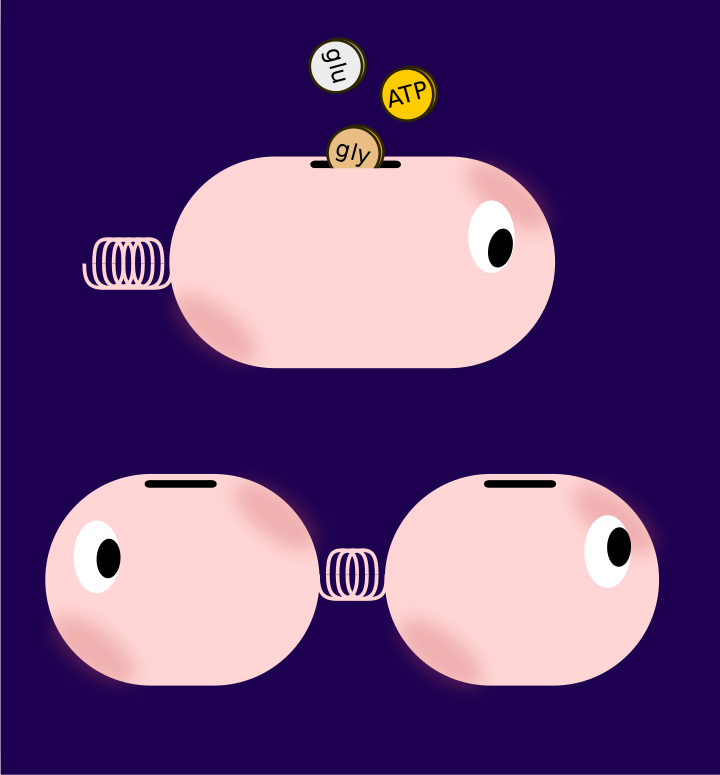Economic Principles in Cell Biology

Welcome | Forum | Young scholars | Textbook | Teaching materials | Summer school | Workshops | Contact
Book main - Contents - Lectures - Problems - Code - Contributors - For authors
Economic Principles in Cell Biology
A collaborative open-access textbook
How can a cell maintain itself as a living being? Living cells, shaped by billions of years of evolution, have developed many ways to adapt to their environment in order to thrive and to maximize their chance for survival. Cell metabolism is shaped by the rules of physics and chemistry, which enforce boundaries on what cells can achieve. But within these boundaries, we can still ask how cells should allocate their resources. By looking at cells through this economic lens, we may uncover some general design principles that characterize life.
In our textbook, to which everyone is invited to contribute, we give an overview of established approaches and topics in cellular economics, from descriptions of simple metabolic systems to cell growth, variability, and dynamic behavior.
For more information about our project, see our website for authors.
To join us in writing this book, please get in touch anytime!
Edition April 2025
Our book is being developed continuously, with updated versions released every 3 months. Below you can find the latest version. The book and single chapters (formatted as preprints) are also available on zenodo.
- Download single chapters (pdf)
- Download the book (normal pdf version)
- Download the book e-book version (pdf formatted for e-book readers)
- Download the book print version (pdf formatted for print on demand)
- Read the book in your browser (opening the pdf may take a while)
To cite this book: The Economic Cell Collective (2025). Economic Principles in Cell Biology. No commercial publisher | Online open access book. doi: https://doi.org/10.5281/zenodo.12592398.
Contributors
The Economic Cell Collective is an informal international group of researchers. You are very welcome to join!
See the list of contributors and supporting institutions.
Give us your feedback
To give us your feedback about the book, please fill in this form. Your comments may concern a specific chapter or the entire book. It can really be anything: typos, factual mistakes, extra information you think should be added, ideas for new chapters, etc. For longer reviews, you can attach a separate document. For any issues or if you would like to speak to us in person, feel free to contact us at epcb-book-organizers@googlegroups.com.
How to contribute
This project thrives on collaboration, and we're grateful for your willingness to support it. You are welcome contribute to our book! To learn more about what you can do, please follow this link!
Lecture slides and videos
The book chapters have been presented as lectures at our summer schools. Lecture slides and videos are available here.
Copyright
The book is published under the Creative Commons license CC BY-SA. This license allows you to share and adapt (also for commercial purposes) if you give appropriate credit, provide a link to the license, and indicate whether changes were made. If you remix, transform, or build upon the material, you must distribute your contributions under the same license CC BY-SA.
Contact
To contact us, please send an email to epcb-book-organizers@googlegroups.com. You can also get in touch with us through our Bluesky account bsky.app/profile/economic-cell.bsky.social. Please use the hashtag #celleconomics to promote and discuss the textbook chapters.
For more information, please visit our website for authors.

